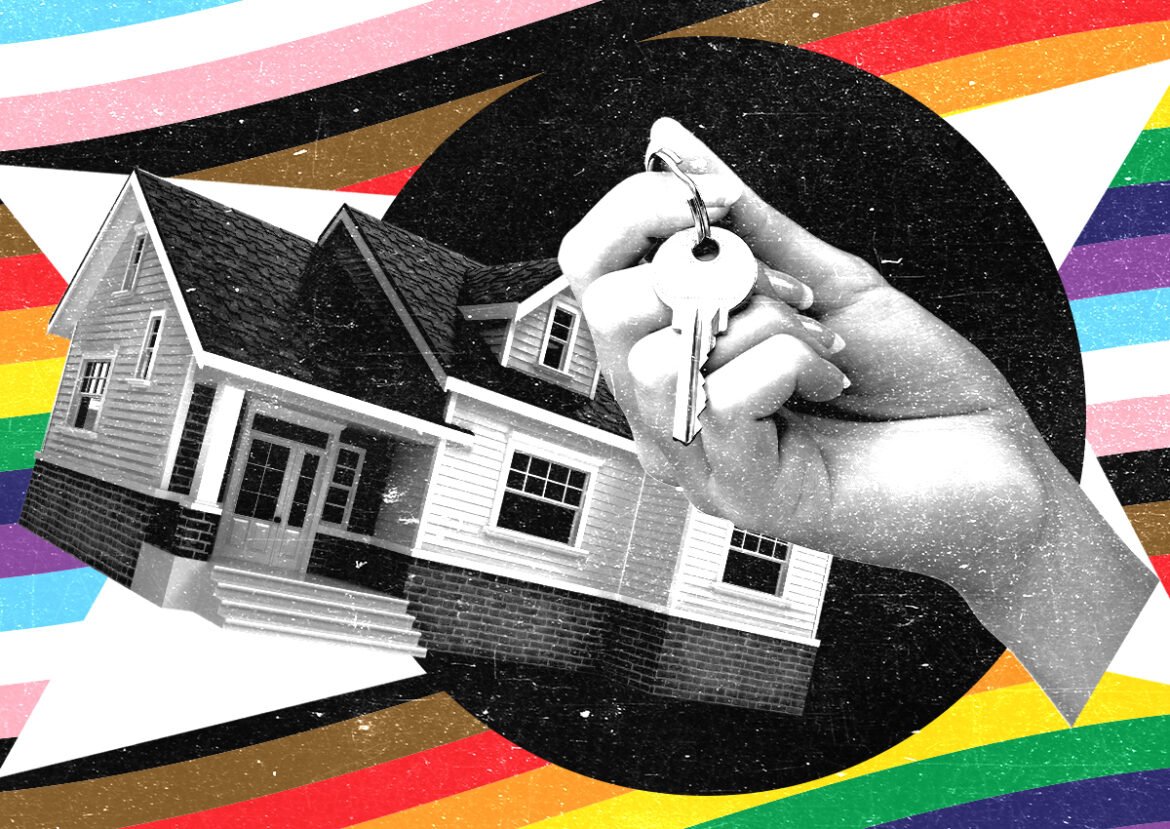Although the desire for homeownership is strong within the LGBTQ+ community, the numbers among the group remain notably lower than their heterosexual and cisgender counterparts for several reasons.
Affordability is a pressing issue, with many LGBTQ+ renters citing financial constraints as a barrier to homeownership, the Philadelphia Inquirer reported.
A Redfin survey indicated that more than half of LGBTQ+ renters expressed concerns about affordability, with many working multiple jobs or requiring financial support from family, a situation less prevalent among non-LGBTQ+ renters.
Moreover, student loan debt has been identified as another obstacle.
Discrimination also continues to be a prevalent issue in the housing market, with one in five LGBTQ+ buyers and renters reporting experiences of discrimination based on their sexual orientation during the home search process.
Furthermore, a considerable percentage of LGBTQ+ individuals indicated a preference for residing in areas with protective laws for gender and sexual orientation, highlighting the need for inclusive housing policies.
Nicole LaGreca, a real estate agent, said she often encounters subtle discrimination due to her queer, masculine presenting, and genderqueer identity. During a property viewing in Port Richmond, where her client, seemingly uncomfortable, abruptly fled into a tornado warning, she said.
Real estate professionals emphasize the urgency for industry stakeholders to confront their biases and actively work toward creating an equitable and welcoming environment for all individuals.
They encourage reporting discriminatory incidents to relevant authorities, including regional Realtor associations and civil rights commissions, to address these systemic issues and ensure a fair housing market for all.
It’s a challenge, reflected in laws being passed nationwide that make the environment less than welcoming in some states.
Texas’ anti-LGBTQ+ laws are causing an outflow of members of that community.
Dallas real estate agent Bob McCranie of the Texas Pride Realty Group is committed to helping fellow members of the LGBTQ+ community find homes, even if it means leaving Texas to feel safer.
In light of nine bills signed by Gov. Greg Abbott following the Texas legislative session that ended last month, McCranie launched “Flee Red States,” a program that connects clients with agents in other states or countries, CandysDirt.com reported.
“We have numerous examples of Texas residents fleeing the state for more inclusive communities,” LGBTQ+ Real Estate Alliance Ryan Weyandt CEO said.
The LGBTQ+ Real Estate Alliance signed a memorandum of understanding with the Greater Houston LGBT Chamber of Commerce this week in an effort to organize and show the community’s economic power, RisMedia reported.
McCranie started his firm in 2009 after he and his partner were treated unfairly when purchasing a home. He found a niche cultivating a safe space for home buyers and sellers.
“If you go to a restaurant and you have crappy service and the food makes you sick, you’re never going to spend money in that restaurant again,” he said. “If you live in a state that takes away your civil rights and still charges you the same taxes, why would you go back to that state? If they’re threatening to criminalize you and your community, why would you go back?”
Local municipalities, like Dallas, Austin and Houston, have local protections for LGBTQ+ people for housing, employment, and healthcare. But Republican lawmakers have an agenda to override local control and end such protections. For people who once felt safe in cities like Austin, or neighborhoods like Dallas’ Oak Lawn or Houston’s Montrose, “those bubbles are going to get pre-empted,” McCranie said.
He’s already helped 27 families since launching the “Flee Red States” program on June 1, he said. Hundreds of Texans have reached out to him, expressing their desire to sell their homes and relocate to an “inclusive” area.
— Ted Glanzer

